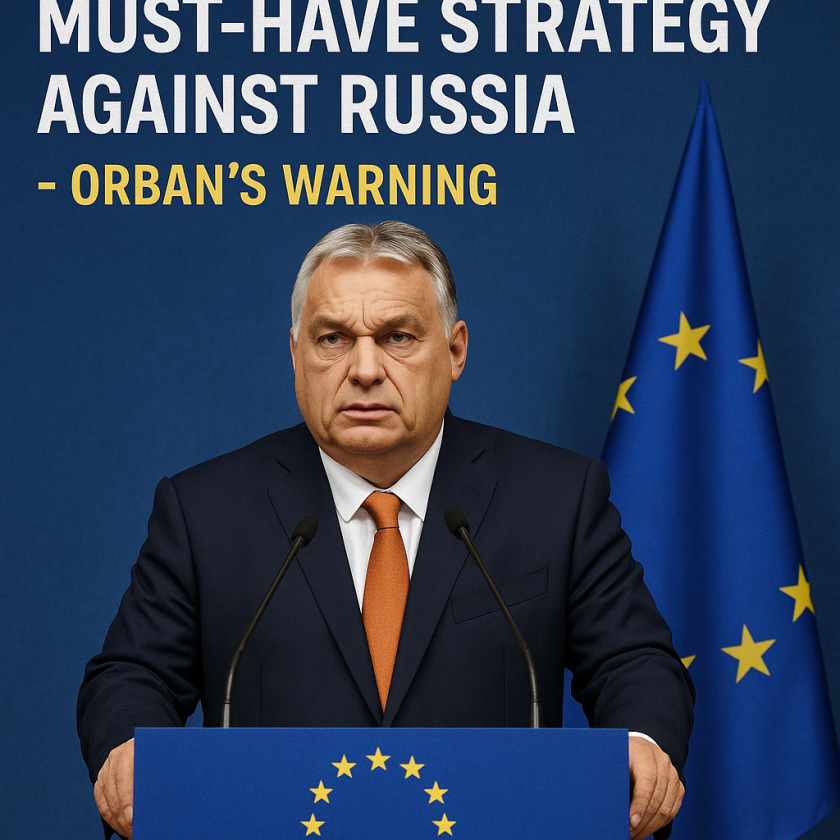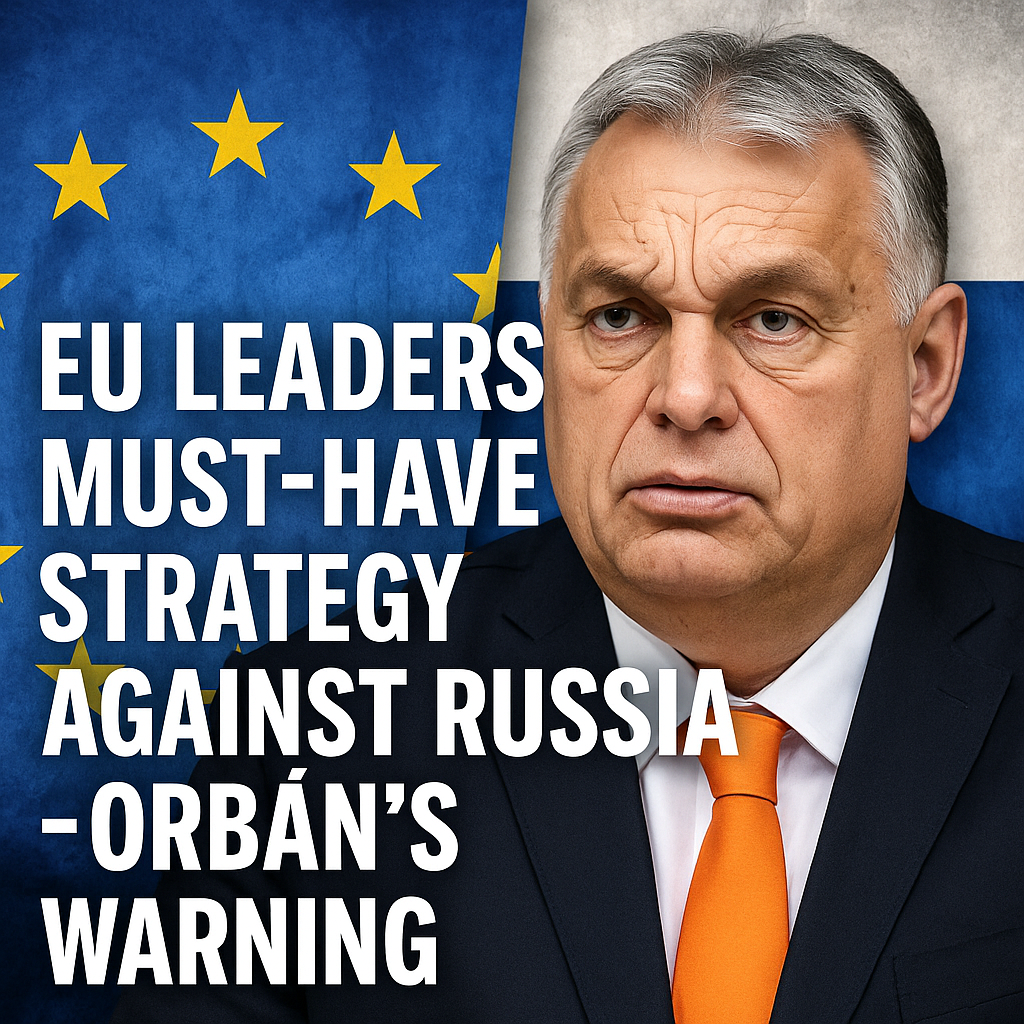EU Leaders Must-Have Strategy Against Russia – Orban’s Warning
EU Leaders Must-Have Strategy Against Russia: Orban’s Warning
Hungary’s Prime Minister Viktor Orban has emphasized the urgent need for EU leaders to form a robust strategy against Russia, particularly in light of escalating geopolitical tensions. This warning reflects the complexity of international relations in the region, laden with historical grievances and contemporary challenges. As the EU grapples with its response to the ongoing conflict in Ukraine and the assertiveness of the Kremlin, it’s crucial to evaluate the multifaceted dynamics at play.
The Importance of a Unified EU Response

Orban’s stark warning highlights a critical juncture in European foreign policy. The Russian invasion of Ukraine has not only caused humanitarian crises but also raised concerns about energy security and regional stability within Europe. Leaders across the EU are faced with a pressing mandate: to craft a cohesive strategy that not only addresses immediate threats but also lays the groundwork for sustainable peace.
Key Challenges in Formulating Strategy
1. Diverse Interests Among Member States:
– The EU is composed of nations with varying historical relationships and economic dependencies on Russia. For instance, while countries like Poland and the Baltic states advocate for a tough stance against Moscow, nations such as Hungary and Italy express hesitance due to their economic ties.
2. Economic Implications:
– The EU’s reliance on Russian energy sources complicates discussions. Sanctions must be balanced against potential economic downturns, particularly for nations heavily reliant on Russian gas and oil. A thoughtful approach must consider how to support these states while ensuring a unified front against aggression.
3. Public Sentiment:
– Citizen attitudes towards sanctions and military support can shape political responses. In some countries, there is a growing weariness regarding long-term military aid and economic sanctions, leading to political leaders recalibrating their strategies to align with public sentiment.
Diverse Perspectives on a Comprehensive Strategy
As discussions within the EU gain momentum, differing viewpoints regarding the appropriate course of action have emerged.
Strong Support for Military Assistance
Many leaders advocate for continued military assistance to Ukraine as a means of countering Russian aggression. They argue that a robust response is essential for upholding democratic values and deterring further invasions. For instance, leaders from Eastern Europe have consistently called for increased support, emphasizing that failure to act decisively could embolden aggressors in the long run.
Calls for Dialogue and De-escalation
Conversely, some leaders, including Orban, have underscored the necessity for diplomatic channels to remain open. Orban has suggested that dialogue should not be abandoned, asserting that negotiations can play a crucial role in achieving lasting peace. This perspective hinges on the belief that a purely confrontational approach might exacerbate tensions and prolong conflict.
The Middle Ground: Sanctions and Strategy
Another viewpoint advocates for a balanced approach that combines sanctions with diplomatic efforts. This strategy emphasizes the importance of maintaining pressure on Russia while simultaneously exploring avenues for negotiation. Such an approach seeks to ensure that the EU is prepared for various scenarios, as the situation can evolve rapidly.
A Cohesive Strategy: The Path Forward
The road ahead for EU leaders is fraught with challenges but also opportunities for innovative diplomacy. As Orban’s remarks resonate throughout the continent, the emphasis should be on unity coupled with a clear understanding of individual member state needs.
Proposals for Consideration
– Establish a Unified Energy Policy: Reducing dependence on Russian energy is critical. The EU could accelerate investments in renewable energy and establish strategic partnerships with alternative suppliers to mitigate any economic fallout from energy sanctions.
– Enhanced Military Coordination: Strengthening military cooperation and interoperability among EU nations can better position the bloc to respond to threats without relying solely on NATO provisions.
– Inclusive Dialogue Platforms: Facilitating dialogues that involve various political and civil society actors from member states could nourish a culture of collaboration, essential for developing a common foreign policy.
Given the complexity of the issues at play, the importance of dialogue, and the potential for different strategic outcomes, EU leaders must tread carefully. Balancing immediate security needs with long-term geopolitical stability will be essential in fashioning a strategy that is not only effective but also reflective of the diverse interests within the union.
In conclusion, Orban’s warning should serve as a catalyst for renewed discussions among EU leaders about their strategy against Russia. By fostering a collaborative, inclusive approach, the EU can navigate the challenges posed by Russian aggression while remaining committed to the values that underpin its unity. The stakes are high, and the path forward requires foresight, unity, and a willingness to adapt to an evolving global landscape.




































